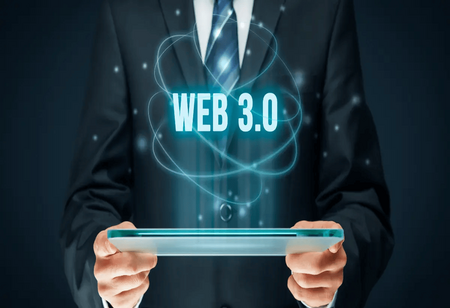The Impact of Early Web 3.0 Exposure: Shaping Tomorrow's Workforce
By Consultants Review Team
 The digital landscape is currently undergoing a revolutionary transformation with the advent of Web 3.0, marking a paradigm shift that promises to redefine our interaction with the internet. This transformative wave is not just a technological evolution but also a key factor in shaping a new generation of the workforce, uniquely equipped to navigate the challenges and opportunities of the future.
The digital landscape is currently undergoing a revolutionary transformation with the advent of Web 3.0, marking a paradigm shift that promises to redefine our interaction with the internet. This transformative wave is not just a technological evolution but also a key factor in shaping a new generation of the workforce, uniquely equipped to navigate the challenges and opportunities of the future.
Web 3.0, often termed the "Semantic Web," transcends traditional internet boundaries, providing a more intelligent, decentralized, and interconnected experience. Its core principles involve advanced machine learning, artificial intelligence, blockchain technology, and a focus on user empowerment. As this new era unfolds, the significance of introducing these concepts early in education becomes increasingly apparent.
A recent report from the World Economic Forum (WEF) titled "The Future of Jobs Report 2023" underscores the urgency of preparing the workforce for the digital future. It predicts that over 50% of all employees will require significant upskilling by 2025 due to rapid technological advancements and shifts in industry demands. Introducing Web 3.0 concepts early in education is deemed a critical aspect of this preparation.
Incorporating Web 3.0 into educational curricula provides students with a unique advantage. Skills developed in understanding decentralized systems, smart contracts, and user-centric design principles empower individuals to participate in the digital economy with a deeper understanding of the evolving technological landscape.
Early exposure to Web 3.0 concepts goes beyond fostering technical skills; it instills a mindset of adaptability and innovation. A study by the McKinsey Global Institute titled "Skill Shift: Automation and the Future of the Workforce" suggests that crucial future workforce skills include not only technical prowess but also cognitive abilities, social and emotional skills, and a continuous learning mindset.
The introduction of a self-paced program titled "Quick Guide to Web 3.0" by TimesPro is a significant step in bridging the gap between traditional education and the evolving demands of the digital age. This program provides a comprehensive overview of Web 3.0 concepts, equipping participants with the knowledge and skills needed to navigate this new frontier. Emphasizing hands-on learning and real-world applications, it empowers professionals to stay ahead in the rapidly changing tech landscape.
Moreover, the self-paced nature of the program makes it accessible to a broad spectrum of learners, from students to working professionals. Covering various topics, including decentralized applications (DApps), blockchain fundamentals, and the implications of decentralized finance (DeFi), the curriculum ensures a holistic understanding of the Web 3.0 ecosystem.
The early introduction to Web 3.0 is not merely a technological adaptation but a strategic move to shape a workforce that is agile, innovative, and well-versed in the technologies shaping the future. Educational initiatives like the "Quick Guide to Web 3.0" hold the promise of creating a generation of professionals who are not just participants but pioneers in the unfolding era of the Semantic Web.




